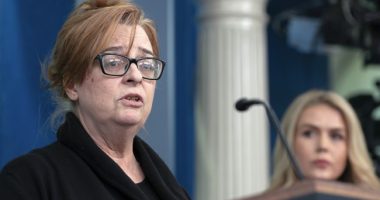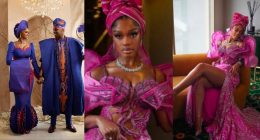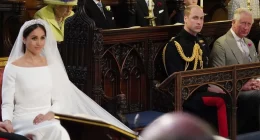Anthony Albanese’s history of anti-Royal comments re-emerges as he attends he coronation of King Charles III
- Anthony Albanese is a republican
- He will fly to London for King’s coronation
- In 1999, he said republic was ’embarrassing’
<!–
<!–
<!– <!–
<!–
<!–
<!–
Anthony Albanese’s anti-Royal past has been revealed as he enjoys a weekend in London attending the coronation of King Charles III with a bevvy of notable Australians.
In 1999, the Prime Minister told a Republic Referendum Committee that young people ‘simply cannot identify with Queen Elizabeth or Prince Charles’.
Mr Albanese, who was an MP at the time, said the time had ‘well and truly come’ for Australia to ditch the monarchy and stand on its own two feet.
‘It is very important that we are able to move forward,’ he told the parliament.
‘Young people in this country simply cannot identify with Queen Elizabeth or Prince Charles being our head of state.
‘When you travel overseas it is seen as quite bizarre and embarrassing.’


Mr Albanese and partner Jodie Haydon attend the coronation of King Charles III in London on Saturday.
Mr Albanese warned that if Australia remained a monarchy, students and young people in 30 or 40 years time would see it as a missed opportunity.
‘I urge people to support the republic and to support it now because it is inevitable -everyone accepts that. We should do it now, so we can do it with pride,’ he said.
His speech came just months before Australians were due to vote in a referendum on whether the nation should remain a monarchy or become a republic.


Anthony Albanese will attend the coronation of King Charles III in London this weekend


Mr Albanese (pictured with King Charles III in September) told a 1999 Republic Referendum Committee that young people ‘simply cannot identify with Queen Elizabeth or Prince Charles’
Fast forward to 2023, where Mr Albanese refused to give a direct answer when asked if Australians should be swearing their allegiance to the monarch.
Read Related Also: Jameela Jamil Reacts To Media’s Coverage Of Her Appearance On ‘The View’
On Monday, the PM was asked if Australians could be expected to support the new monarch and whether he would invite the King for a Royal Tour.
‘I would like to see the King come to Australia. I’ve invited the King… One of the things that occurs, of course, when we get sworn in as members of parliament, is that you do swear allegiance to the Crown,’ he said on Monday.
Mr Albanese said the coronation was an ‘important event’ and that the Royal Family would always be welcome in Australia.
It comes after the prime minister was accused of making a major ‘royal gaffe’ after failing to formally invite King Charles to Australia.
He gave an open invitation when he met Australia’s new head of state in London at Queen Elizabeth II’s funeral in September.
The prime minister described his meeting with the King as ‘a warm gathering’ and that ‘this is a time of respect, that is what is required here’.


Australians have been called upon to cry out inside their homes during King Charles’ coronation (the Royal is pictured in Darwin in 2018)


The prime minister was accused of making a major ‘royal gaffe’ after failing to formally invite King Charles to Australia after he visited the Royal in September (pictured)
Mr Albanese, a republican, is yet to follow up on that promise with an official invitation for the King to visit Australia for the 17th time, his first as King.
It’s traditional for the monarch to visit Australia within 12 months of being crowned, according to royal biographer Robert Jobson.
Mr Albanese has previously flagged there is unlikely to be a public referendum on the question of Australia becoming a republic until his second Labor term.
In the aftermath of the death of Queen Elizabeth III, a survey found the majority of Australians were in favour of Australia remaining part of the monarchy.
A poll conducted by Roy Morgan found of 1,012 people, 60 per cent wanted to remain a monarchy while 40 per cent would prefer to be a republic.
More women than men were in support of the monarchy, 66-34 for women and 54-46 for men, while younger Australians were the biggest supporter of a republic, with 52 per cent of under-35s in favour of the move.








